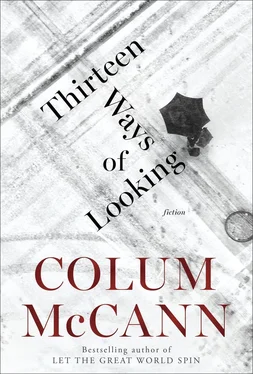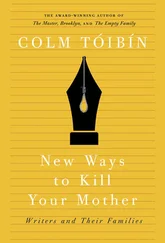Are one.
Used to be there was quite an art to the newspaper fold. Back in the days when they summered out on the Island. A young whippersnapper. Sitting on the LIRR with the other suits and ties. It was a spectacular skill, to be able to fold the paper in long neat sections. The choreographed commute. An early morning ballet. They could sit in rows of three, knee to knee, turn the pages and still never touch elbows. Streamlining it. Some of the more meticulous could make perfect folds right along the storylines, four little corridors of broadsheet, like the fine edge of a bespoke suit. When the world was respectful and polite. Briefcases and umbrellas and door-holding. Occasionally there was a schmuck who couldn’t fold the paper at all and he would be there, arms flailing, paper rustling, no respect, an accordion of elbows, the same species who could never find his commuter pass, or who dropped his coffee, always fumbling around, making noise, causing a fuss. At least in those days there were no cell phones to deal with.
He took a train up to Stamford last week to Elliot’s house, his mansion rather, awful place, twelve bedrooms and swimming pool and media hall and five-car garage, but cheap and shoddy all the same, like the one next door, and next door to that, a row of Ikea houses, such wealthy mediocrity, his very own son, his big bald son, who could believe it? The baldness, the bigness, the stupidity, in a house designed to bore the living daylights out of visitors, no character at all, all blond wood and fluorescent lighting and clean white machinery, not to mention his brand-new wife, number three, a clean white machine herself, up from the cookie cutter and into Elliot’s life, she might as well have jumped out of the microwave, her skin orange, her teeth pearly white. A trophy wife, but why the word trophy ? Something to shoot on safari?
Just as well Eileen never got to meet her. She wanted so much for her big, tall boy and what did she get except no grandchildren, a boatload of sorrow, and two divorces? Not to mention the fact that Jacintha came with three boys under her wing, ready-wrapped fatherhood, straight from the mail-order catalog, all legs and pimples and angst. His step-grandchildren, a blubbering stew of adolescence, he can hardly even remember their names, nor their faces, and who in the world would name their son Aldous these days anyway? A brave new world it is not.
Where was I anyway? The mind these days, it slides so quickly. Nosce te ipsum. Something to do with cell phones? Or was it the newspaper and the folds?
Used to be that he’d read the paper cover to cover, minus the sports, then fold out the crossword puzzle, finish it in twenty minutes flat. Not anymore. Still, it’s one of his favorite moments of the day, the mental brunch of The New York Times . Open to a story about the Central African Republic. An awful thing, those machetes. All the news that’s fit to splint. A report on North Korea. No money for the Super Collider. The imminent collapse of the Middle East peace process. Well, of course, there’s always that. Hard to think of it collapsing since he knows full well that it was hardly ever built up in the first place. Poor Katya, over there, week in and week out, in her diplomatic post, pleading and cajoling and mollifying her heart out, when the plain fact of the matter is the bastards just don’t want peace, any of them, one side or the other, Jew or Arab or Christian or Coptic or whatever else, they’d rather suicide-bomb one another asunder, it’s the ordinary man on the street who suffers, women, too, not to mention poor Katya herself, over there with his teenage grandkids, no step about them, beautiful kids, Laura, James, Steven, but a life under the microscope, armed guards all over the estate, and why did she have to choose Israel of all places, couldn’t she have gotten involved in Belfast or somewhere halfway sane?
Poor Eileen hated to see any news of Northern Ireland. Used to put her in an awful tailspin. Over there blowing the heads off one another for no sane reason either, lobbing molotov cocktails, marching in parades to celebrate the dead, flying their banners, King William up on horseback. All war, any war, the vast human stupidity, Israel, Ireland, Iran, Iraq, all the I ’s come to think of it, although at least in Iceland they got it right. Odd that. You never hear a peek of war from Iceland at all, but then again who’d want to be firing bullets over a piece of frozen tundra?
Nothing but misery everywhere, truth be told. Why don’t we say that the whole world’s a madhouse and simply, then, leave it be? Isn’t that right, Sally? I’d bet there’s even some form of carry-on going down in wherever it is you’re from.
— Sally!
She is busy down in the bedroom, vacuuming and singing her sweet head off. An eternity ago, my mother used to sing to me too while cleaning the house. Far away, far away. In the kitchen. The stove was large and red and potbellied. A giant stovepipe, painted blue for some reason. Standing there with flour on her hands. Wiping them on the front of her apron. All the old Lithuanian tunes. Mountain flowers and frozen canals and riverbanks and ferryboats.
Vilnius, Vilno, Wilna, Wilno. The world has a complicated geography. In later years his mother filled him in on the particulars of his birthplace — the knifeblade used for making ice skates, the way the moonlight fell upon the rivers, the small red jacket he always wore, the gloves she stitched with elastic inside his sleeves, how they bounced when he ran along through Kalnų Park. Once a dog chased him, attracted by the bounce of his gloves. Dark dogs everywhere. He had nightmares after that. Then the daytime itself installed the dark. They got out of the city just in time. His mother had a feeling of what was in the air. How many wars had there been already? Poor Vilnius, Vilno, Wilna, Wilno, renamed at every turn. How many times had it been run and overrun? A great dignified city, all yellow brick, high cornicework, but pierced with bullet after bullet. His father, a well-known doctor, sold the house on Vokiečių Street, took the savings, bundled the family on a train bound for Paris. It was still a time when borders could be crossed with ease. They had plenty of money to get by. No hidden jewelry. No blessings from the rabbi. No furtive prayers. No curses either. No ghetto-quarter narrative. No babies thrown from the windows. His mother had dropped nearly all tradition behind her. It didn’t interest her to be Lithuanian, or Polish, or Russian or anything else for that matter, not even Jewish. His father, too, was a stern atheist. Not at all interested in the formalities, though he would sometimes read the Torah and even recite parts of the Kaddish, saying that lines of it were a recipe for great thinking. In this holy place, and every other, may there come abundant peace. Or something like that. Bow to the left, bow to the right. And it would be something indeed, wouldn’t it? Abundant peace? Two chances, as they say: slim and none.
The steam train rattled past the tall thin trees of Germany, Belgium, France. They lived in a hotel on the banks of the Seine. At night they gathered in the hotel kitchen, around the radio, the intimate fireside of the world, all that flaming hatred, ash, the sundering of Europe. The nights of long knives, the weeks, the months, the years.
But then it was Dublin, in the middle of the war. His father got a job in the Royal College of Surgeons. A city taking its ease under a bountiful sky. Applauding its own grayness. A hat of it, a homburg, a derby of drab. He loved it there. His happiest two summers. A house on Leeson Street not far from the canal. Ten years old, he wore shorts with garters and long elastic socks. Bobbed along the cobbled streets, came home to a warm fire in the early dark. A staircase. A long dining table. Two silver candlesticks in the middle. Oh, the mind itself is a deep, deep well. Lower me down and let me touch water. He even tried to acquire for himself a Dublin accent. Two chances there also: none and sweet fuck-all.
Читать дальше












